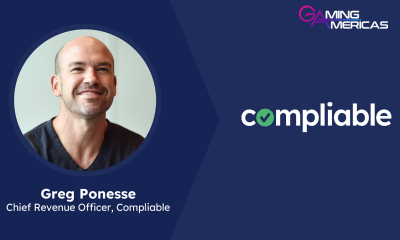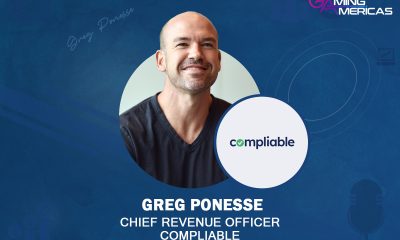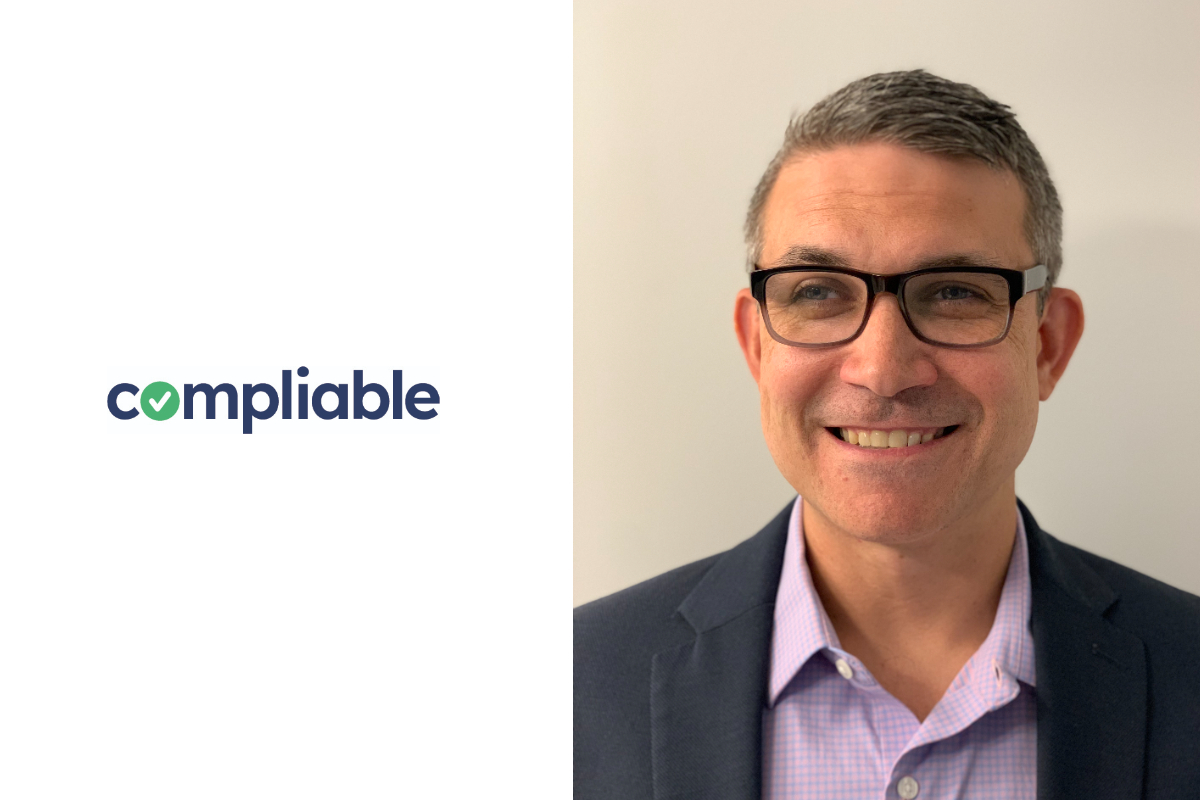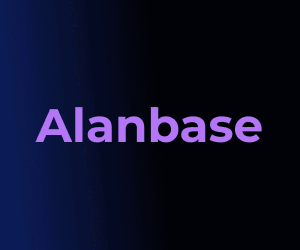Compliance Updates
The importance of agile tech in a rapidly evolving market

Compliable’s licensing platform enables sportsbooks and iGaming businesses to obtain employee, entity, vendor and other businesses licenses across multiple states in the US, ensuring speed to market which is crucial as regulation in the region evolves. We caught up with Chief Regulatory Officer, Justin Stempeck, on how Compliable stays agile, adapting its solution to support an industry with increasing regulatory demands.
How has the ever-changing gambling regulation in the US had an impact on your offering since you launched three years ago?
The nature of the industry we are in forces us to constantly think ahead to be prepared for any changes to existing regulation or new markets opening up. Since we launched our solution, we have built on it to ensure we can offer our clients the support they need, and this has been driven by how the sector has developed in the US over the last few years. Our product offering now includes multiple modules to support any type of license that gambling companies need to enter regulated US states. The regulatory landscape is complex, but our platform removes a big hurdle for the industry, helping companies quickly apply and manage their key, employee, vendor, and entity licenses across many states.
As a tech start-up, we are always looking at ways to strengthen our platform and ensure we stay ahead of our competition. We work closely with our clients and partners to understand their requirements and incorporate this into our product development, and we also have a close dialogue with regulators. We have repeatedly worked with customers to understand their licensing workflow and customize our product to best fit their existing methods to offer them the most value.
What advantages does Compliable’s platform have over its main competitors in the market?
What sets our solution apart the most is the degree of completeness that it offers as it finalises applications fully, entering all data and documentation where it needs to be. The simplicity of using our platform is a huge benefit to anyone who goes through what is often a complicated application process.
The user journey is therefore important, and offering a streamlined and simple process as people navigate through the platform is something we have worked hard on. We have extensive FAQs and a live chat available, further improving the user experience and the support we can offer. The US is a market we know extremely well and as experts in licensing and compliance, we want to offer more than just a tech solution.
Our job is never done at Compliable as we are always challenging ourselves to do more. With the modern tech our solution is built on, we have the possibility to continue to innovate compared with other legacy products on the market.
What role has reg tech played in the expansion of the US gambling markets and could more be done in this space?
It has been tremendously important for many companies who are smaller as they might not have the resources to handle it themselves. While hiring outside counsel to handle licensing applications has long been the norm for many companies, we instead empower the company itself to effectively complete the work in a time/cost efficient and thorough manner.
The reg tech space has evolved quickly over the years and there are so many areas where innovation can truly help gambling companies focus on what matters most to grow their business. Employee and entity licensing are an often-forgotten piece of the equation where using our solution can really make a difference. Our platform makes licensing much more approachable for people and we will continue to build out the functionality to ensure the license management process is as efficient and intuitive as possible.
Compliance Updates
Play’n GO breaks new ground with entrance into third Argentinian province

Swedish gaming giants’ games now available in the province of Córdoba’s newly regulated market
Play’n GO, the world’s leading casino entertainment provider, has today announced their expansion into yet another new regulated market, as the Swedish gaming giant has agreed a partnership with Betsson in the province of Córdoba, Argentina.
Argentina is currently in a process of regulation for online gaming purposes on a province-by-province basis, and the partnership with Betsson sees Play’n GO enter yet another regulated market, keeping up the momentum from 2023 that saw the company expand its global reach.
This announcement sees Betsson’s players in Córdoba gain access to Play’n GO’s entire catalogue of games, including classics such as Book of Dead, Reactoonz, and Moon Princess.
This announcement is a signal of intent from Play’n GO, who reiterate their commitment to be present in every regulated market in the world.
Michele Stefanelli, Sales Leader, LATAM and Southern Europe, Play’n GO said: “Our first foray into a new region is always exciting for us, and we’re looking forward to a successful partnership with Betsson in Córdoba. Players around the world, and especially in the LATAM region, have already shown their fondness for our content, and we’re quietly confident that this new region will be no different. We are on record with our commitment to a safe, regulated industry, and we’re very pleased to see that approach rolled out globally by lawmakers and operators alike.”
Maximiliano Bellio, Managing Director Betsson Argentina, added: “We’re pleased to welcome Play’n GO to the Betsson family here in the Córdoba region, and we look forward to many years of success together. Like Play’n GO, Betsson is committed to a sustainable industry model, so this partnership makes perfect sense for both parties. We’re sure our players will be as excited as we are once they start playing these games that have proven so popular around the world, so let’s get started.”
Play’n GO’s games are already available in the autonomous city of Buenos Aires and Buenos Aires Province within Argentina’s federal system.
Compliance Updates
OpenBet bolsters compliance technologies with the launch of geolocation product, OpenBet Locator™, powered by Amazon Web Services (AWS)

OpenBet Locator™ provides a highly flexible, low latency and scalable alternative for global betting and gaming marketplace
OpenBet, a leading content, platform and service provider to the global betting industry, has bolstered its modular product portfolio with the launch of its new flexible and scalable geolocation product – OpenBet Locator™.
Built on the backbone of Amazon Web Services (AWS), OpenBet’s strategic cloud provider, OpenBet Locator™ is a low latency solution that enables operators worldwide to locate, promote to, and monitor customers, remaining fully compliant with regulatory requirements.
The technology strengthens OpenBet’s reputation for market-leading player protection and compliance following the company’s acquisition of Neccton in 2023. With OpenBet’s regulatory reach and multiple licenses, brands will be able to ensure seamless and swift integration of its trusted and compliant technology into their ecosystem.
Initially targeting the North American market, the solution will feature a number of components, such as:
- Fully flexible geo-fence management and high precision location tracking
- Fraud prevention combined with real-time virtual private network (VPN) and location spoofing detection
- Player targeting for customer relationship management (CRM), data analysis and in-venue promotions
- Multi-tenanted solution that supports travelling wallet
- Easy and flexible configuration options to streamline business operations workflows
The product is underpinned by OpenBet’s unrivalled expertise within the global betting industry and is designed to remove the friction of geolocation to the end-customer’s onboarding process.
Jordan Levin, CEO of OpenBet, said: “Introducing OpenBet Locator™ is an exciting move for us and takes our modular product offering to a new level. Built in-house and leveraging AWS technology, we have developed a strong proposition that can be tailored to meet unique business needs.
“As a pioneer within the global sports betting arena for over 25 years, we have an in-depth understanding of the challenges and opportunities operators face within highly regulated markets. OpenBet Locator™ is a scalable, compliant and dependable geolocation solution that removes the barriers to operators’ success.”
Compliance Updates
Gaming CEOs Optimistic on Industry Outlook, Report Evolving Industry Challenges
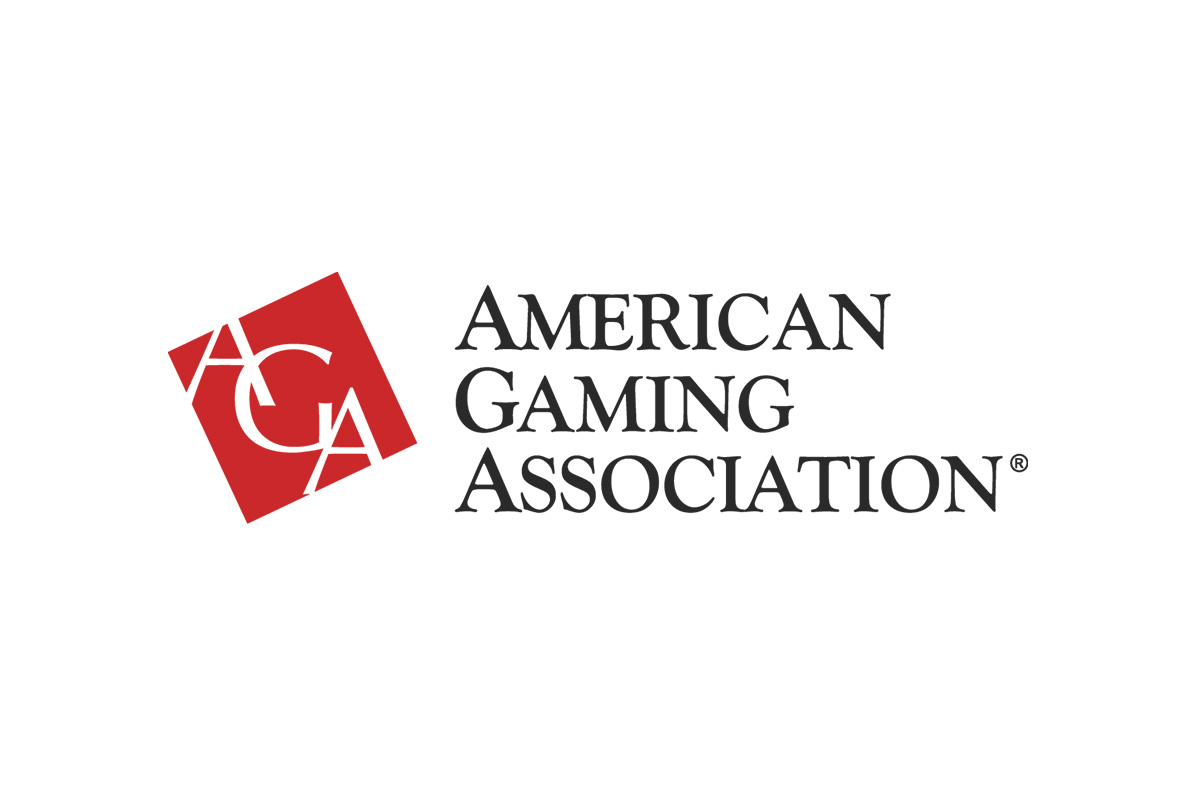
Amidst an evolving economic landscape, gaming executives report a positive outlook on future industry business conditions while remaining satisfied with the current business environment, according to the American Gaming Association’s (AGA) Gaming Industry Outlook.
Nearly all gaming executives surveyed characterized the current business environment as good (44%) or satisfactory (50%), mirroring similar sentiment from Q3 2023. Meanwhile, executives are more optimistic about future conditions, with 32 percent of CEOs expecting business conditions to improve over the next six months, up from 20 percent in Q3 2023.
“Gaming’s record-setting growth over the last three years has set a new standard for industry success,” said AGA President and CEO Bill Miller. “However, as we enter a period of market normalization, continued investment and innovation in offering world-class, responsible entertainment experiences will be required to maintain industry momentum.”
Gaming Executive Panel
Gaming executives have become more positive in their views that overall balance sheet health will improve over the next 6 months (42% net positive), but they expect the pace of revenue growth (13% net negative) and new hiring (22% net negative) to slow. These expectations for decelerating growth have influenced expectations for increases in capital investment and gaming units in operation, with smaller net positive sentiments than before.
- In contrast to past Outlooks, gaming equipment suppliers are slightly pessimistic about the sale of gaming units for replacement use and new or expansion use (both 13% net negative). However, they remain optimistic about the pace of capital investment (38% net positive).
- Half of operator CEOs expect capital investments in hotels over the next year to be higher than normal, and compared to last fall, more also expect higher than normal levels of capital investment in meetings and conventions and table games (28%). Meanwhile, 44 percent of CEOs expect increases in food and beverage investment, down from 67 percent in Q3 2023.
These expectations are also informed by evolving macroeconomic challenges. Executives report that inflationary or interest rate concerns continue to be a major factor limiting operations (28%), but these have been overtaken by geo-political risk (34%) and uncertainty of the economic environment (34%) as the biggest limiting factors in the most recent Gaming Executive Panel.
Current Conditions Index
The Current Conditions Index of 102.8 for Q1 indicates solid annualized real economic growth in the industry of 2.8%. This includes gaming revenue, employment and employee wages and salaries. Notably, the Current Conditions Index shows gaming expanding faster than the overall U.S. economy which last week reported 1.6 percent GDP growth in Q1 2024.
Future Conditions Index
The Future Conditions Index stands at 102.2, indicating annualized industry economic activity, after controlling for underlying inflation, is expected to moderately increase over the next six months. This outlook reflects Oxford Economics’ forecast that the U.S. economy will slow during 2024 but avoid recession. Despite a projected economic slowdown, consumer survey results continue to indicate that more than one-third of adults expect to visit a casino during the next 12 months, consistent with prior quarter results.
About the Outlook
The AGA Gaming Industry Outlook is prepared biannually by Oxford Economics. It provides a timely measure of recent industry growth and future expectations. The Q1 2024 survey was conducted between March 28 – April 10, 2024. A total of 32 executives responded, including executives at the major international and domestic gaming companies, tribal gaming operators, single-unit casino operators, major gaming equipment suppliers, and major iGaming and/or sports betting operators.
-

 Interviews3 days ago
Interviews3 days agoWomen in iGaming Interview: White Hat Studios’ Holly Fairweather
-
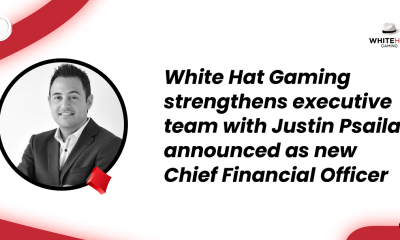
 Latest News3 days ago
Latest News3 days agoWhite Hat Gaming strengthens executive team with Justin Psaila announced as new Chief Financial Officer
-
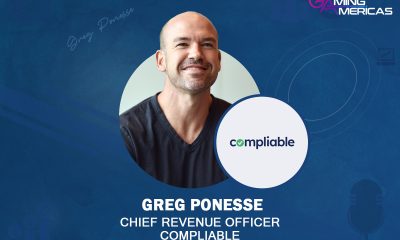
 Compliance Updates3 days ago
Compliance Updates3 days agoReputation matters – the importance of supplier licensing
-

 Compliance Updates1 day ago
Compliance Updates1 day agoOpenBet bolsters compliance technologies with the launch of geolocation product, OpenBet Locator™, powered by Amazon Web Services (AWS)
-

 Compliance Updates3 days ago
Compliance Updates3 days agoNorth Carolina Lawmaker to Introduce Bill to End College Player Prop Bets
-
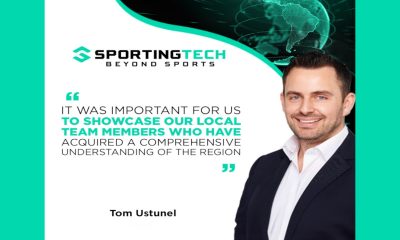
 Latin America3 days ago
Latin America3 days agoSportingtech Places New Local Talent Front and Center at BiS SiGMA Americas
-

 Latest News4 days ago
Latest News4 days agoHard Rock International, Seminole Gaming, Royal Caribbean International and Celebrity Cruises Announce Global Partnership, Bringing Travel Benefits Across Land and Sea
-
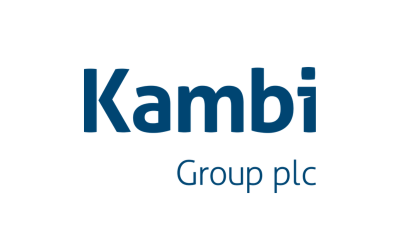
 Gambling in the USA1 day ago
Gambling in the USA1 day agoKambi Group plc extends Mohegan partnership with on-property sports betting agreement in Pennsylvania




